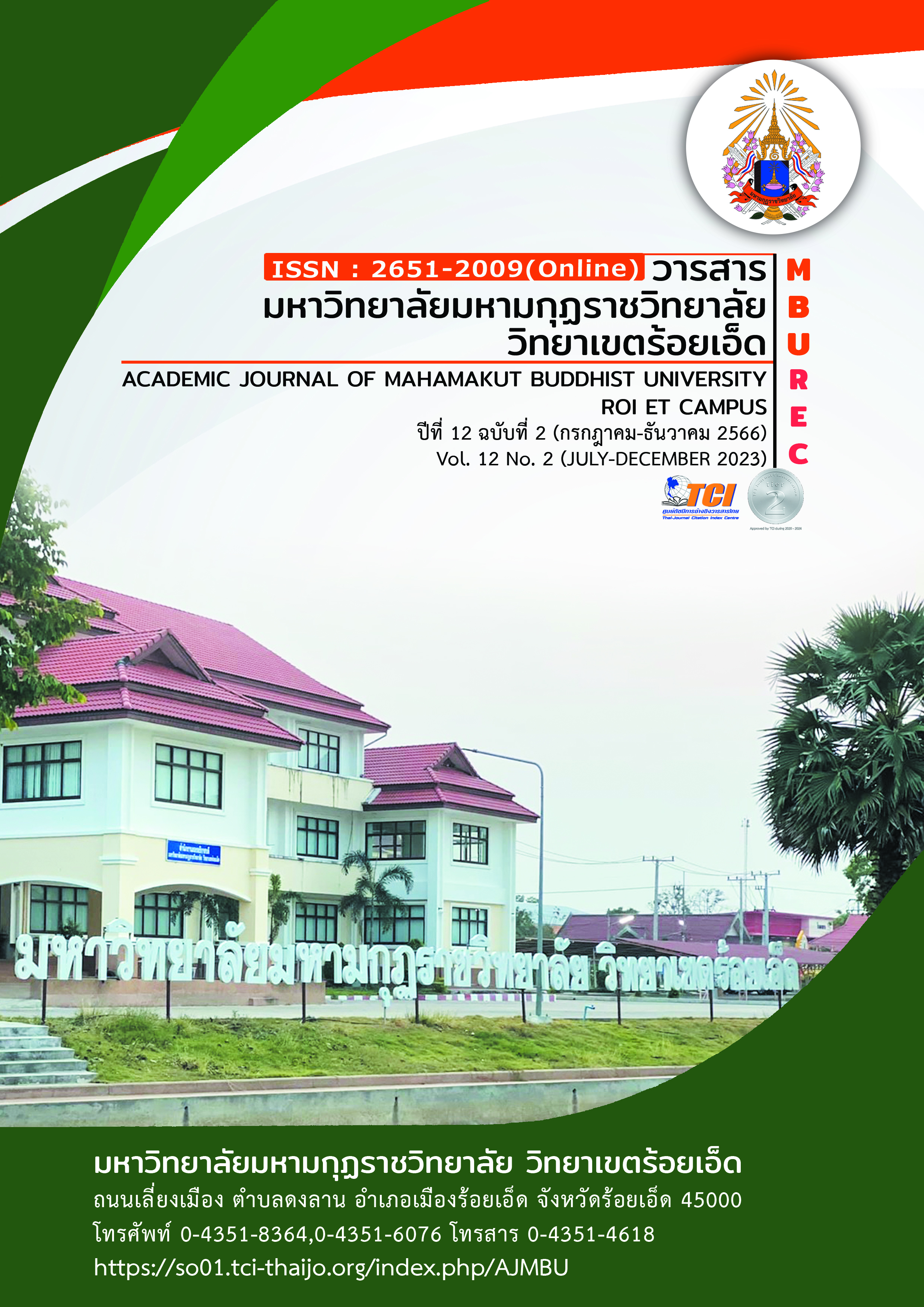THE DEMOCRATIC MONARCHY POLITICAL ATTITUDES OF ARMY NON-COMMISSIONED OFFICER SCHOOL STUDENTS
Main Article Content
Abstract
The purposes of this study were: 1) to study the level of the democratic monarchy political attitudes of Army Non-Commissioned Officer School students; and 2) to study factors affecting the democratic monarchy political attitudes of Army Non-Commissioned Officer School students. The research was a quantitative study. The research instrument was a questionnaire. The sample group consisted of Army Non-Commissioned Officer School Students. Enrolling in the academic year 2022, number 400 people. The stats were Mean, Percentage, One Way ANOVA, and Pearson’s Moment Product Correlation.
The research found: 1) The level of the democratic monarchy political attitudes of Army Non-Commissioned Officer School students was at a high level; 2) Peer group role, family role, and media role had a positive relationship on the level of the democratic monarchy political attitudes of Army Non-Commissioned Officer School students at the level of 0.05. As for the role of the friend group Role of educational institutions and the role of the media It affects political attitudes in a democratic monarchy political attitude. While the family role It has no effect on democratic monarchy political attitudes.
Article Details

This work is licensed under a Creative Commons Attribution-NonCommercial-NoDerivatives 4.0 International License.
References
บุญชม ศรีสะอาด. (2558). การวิจัยเบื้องต้น. กรุงเทพมหานคร : สุริยาสาส์น.
พระณัฐพงษ์ ณฏฺฐวํโส (สุดใจ) เติมศักดิ์ ทองอินทร์ และ ยุทธนา ปราณีต. (2565). การกล่อมเกลาทางการเมืองในระบอบประชาธิปไตยของเยาวชนหนองฉาง จังหวัดอุทัยธานี. วารสาร มจร การพัฒนาสังคม. 7(2). 202-212.
พระทรงวุฒิ รัตนะ. (2564). การกล่อมเกลาทางการเมืองของประชาชนที่มีผลต่อการใช้สิทธิเลือกตั้งทั่วไปในอำเภอบ้านธิ จังหวัดลำพูน. วารสารสหวิทยาการนวัตกรรมปริทรรศน์. 4(1). 44-53.
ฟาติมา ไทยเศรษฐ และประสงค์ กัลยาณะธรรม. (2560). สถาบันในกระบวนการกล่อมเกลาทางการเมืองที่มีอิทธิพลต่อการมีส่วนร่วมทางการเมืองของนักศึกษาระดับอุดมศึกษา จังหวัดกาญจนบุรี. วารสารมหาวิทยาลัยศิลปากร. 37(2). 249-268.
รวิช เมฆหมอก และวัลลภ รัฐฉัตรานนท์. (2563). ทัศนคติทางการเมืองแบบประชาธิปไตย ของประชาชนในเทศบาลเมืองชะอำ อำเภอชะอำ จังหวัดเพชรบุรี. วารสารรัฐศาสตร์ปริทรรศน์ มหาวิทยาลัยเกษตรศาสตร์. 7(2). 38-51.
อมร พิกุลงามโชติ และณฐมน หมวกฉิม. (2564). การศึกษาวัฒนธรรมทางการเมืองแบบประชาธิปไตยของประชาชนในกรุงเทพมหานคร กรณีศึกษาประชาชนในเขตบางกะปิ. วารสารรัชต์ภาคย์. 15(39). 124-136.
Caprara, G. V., Barbaranelli, C., & Guido, G. (2001). Brand personality: How to make the metaphor fit?. Journal of Economic Psychology. 22(3). 377-395.
Easton, David and Dennis, Jack. (1969). Children in the Political System. New York: McGraw – Hill.
Likert, R. (1967). The Method of Constructing and Attitude Scale. In Reading in Fishbeic, M. (Ed.), Attitude Theory and Measurement. New York : Wiley & Son.
Yamane, Taro. (1973). Statistics: an introductory analysis. New York : Harper & Row.


